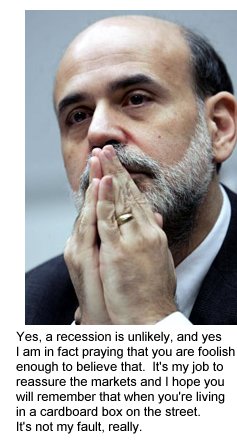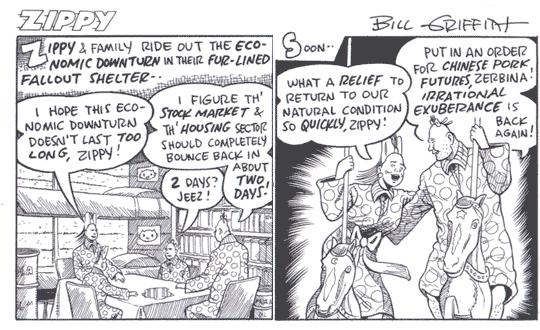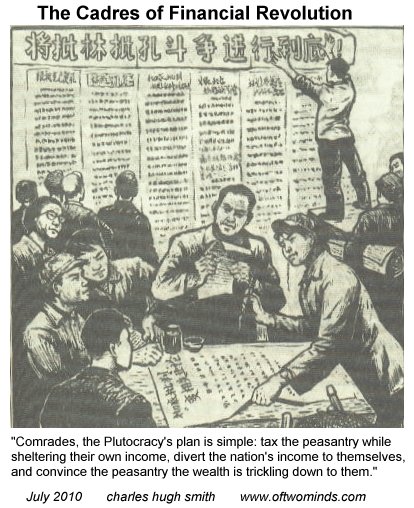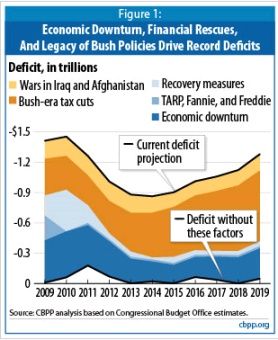The latest furor over BP's connection with the release of "the Lockerie Bomber" reminded me that the evidence against him was slim to the point of fabrication. I recalled something about the bomb's trigger mechanism being untraceable to the purported bomber.
With the vast resources of the internet it is simple to find the real story, or rather, the gaping holes in the popular story. I find it amazing that no one in what passes for the media has mentioned this.
On second thought, I guess it's not so amazing...
Convicted Lockerbie Bomber Probably Not Guilty—So Who Is the Real Criminal?
By Andrew I. Killgore
 Among those listening as Scottish First Minister Alex Salmond addresses the Scottish Parliament during a Sept. 2, 2009 debate on the release of convicted Lockerbie bomber Abdel Baset Ali al-Megrahi are members of UK Families-Flight 103 Dr. Jim Swire (c) and, to his left, Ken Evans, who lost several family members on board the flight. AFP photo/Derek Blair
Among those listening as Scottish First Minister Alex Salmond addresses the Scottish Parliament during a Sept. 2, 2009 debate on the release of convicted Lockerbie bomber Abdel Baset Ali al-Megrahi are members of UK Families-Flight 103 Dr. Jim Swire (c) and, to his left, Ken Evans, who lost several family members on board the flight. AFP photo/Derek Blair
On Aug. 21 Scotland freed Libyan intelligence officer Abdel Baset Ali al-Megrahi—convicted under Scottish law at a special court in The Netherlands of destroying Pan Am Flight 103 over Lockerbie, Scotland on Sept. 21, 1988. Killed were 259 persons, including 189 Americans on board and 11 people on the ground. The terminally ill Megrahi, after dropping his second appeal, was released on compassionate grounds. Back in Libya, he continues to protest his innocence (see box).
Had Pan Am 103 followed its usual flight path it would have crashed at sea. But turbulent air over London’s Heathrow Airport when the Boeing 747 lifted off bound for New York led the pilot to tend slightly more northward than usual to get “above” the storm. As a result, when the bomb that destroyed the plane detonated 38 minutes later, the plane was over land, at Lockerbie. Inclement weather had thus spoiled what the criminals expected would be the perfect crime: no physical evidence and no witnesses to tell the tale.
Robert Black, professor of criminal law at Edinburgh University, told the writer that for the first two and a half years after the disaster, investigators focused on Palestinian Ahmad Jabril’s Popular Front for the Liberation of Palestine-General Command (PFLP-GC) as the culprit. In 1991, however, pressure became so intense to focus on Libya that Black concluded that only the governments of the U.S. and Britain could be behind it. It was Black’s idea to hold the trial in The Netherlands under Scottish law and with Scottish judges.
At the Lockerbie trial so-called “key witness” Abdulmajid Gauci would identify Megrahi as the purchaser of certain items of clothing found at the crash site that Gauci claimed were purchased at his shop in Valetta, Malta. But on the witness stand Gauci proved to be a flop at identification. An FBI officer, Harold Hendershot, called to the witness stand to bolster Gauci’s testimony, also appeared to lack credibility.
Another puzzling aspect of the Lockerbie trial was that, despite the prosecution’s insistence that the bombing could only have been a two-man job, Megrahi’s co-defendant, Lamen Khalifa Fhimah, was acquitted. No explanation was ever forthcoming. A middle-aged American (judging by his accent) attending the trial was overheard by this writer on a BBC broadcast expressing uncertainty about the testimony: “I wonder who killed our relatives?”
Dr. Jim Swire, whose daughter Flora died in the crash, is sure that Gauci identified the wrong man. Swire is an unusual man. As an officer in the British army, he was trained in the use of plastic explosives. After completing his army national service, he worked for the BBC as an electronics engineer before studying medicine and becoming a practicing physician. Dr. Swire cannot accept as credible the Lockerbie trial’s technical details about the explosives that brought down Pan Am 103. He became a spokesman for relatives of British nationals killed in the crash. Overwhelmingly these relatives do not believe that Megrahi is guilty.
Dr. Swire is convinced that shopkeeper Gauci identified an innocent man as the bomber. In a Dec. 27, 2007 e-mail from Swire to this writer, Swire quoted Gauci as saying that Megrahi was “like” the man who bought clothes in his shop, but that the age and height were “very different.” Nevertheless, the Scottish judges accepted Gauci’s testimony.
Gauci reportedly now lives in Australia with a $2 million (some reports say $4 million) reward from the American government. According to the State Department’s “Rewards for Justice” Web site, since its inception in 1984 the program has paid $77 million to more than 50 people.
Improbable Cause
But the biggest reason for questioning the validity of the “Libya-did-it” scenario is the sheer improbability of placing a bomb on a plane in Valetta, Malta, bound for Frankfurt, Germany, there to be offloaded on a second plane bound for London, where it would be offloaded on a third plane bound for New York, to explode 38 minutes later. Common sense would dictate a far more simple scheme: load the bomb aboard a plane in London with a simple pressure mechanism to go off when the plane was safely out to sea 38 minutes after takeoff.
In his Dec. 27, 2007 e-mail, Swire discussed the “timer fragment” supposedly found at the crash site, part of a device made in Switzerland and supposedly sold to Libya. If true, this could mean that Megrahi theoretically could have set the bomb to go off 38 minutes after takeoff. But the Swiss timer turned out to indict the Lockerbie court rather than Megrahi. Edwin Bollier, the owner of MEBO which manufactured the alleged bomb trigger device, revealed that he had turned down an FBI offer of $4 million to testify that he had sold the device to Libya.
In the aforementioned e-mail, from which I am free to quote, Dr. Swire said the Lockerbie court heard of a “specialized timer/baroceptor bomb mechanism” made by the PFLP-GC in the Damascus suburbs. This device would explode within 30 to 45 minutes after takeoff, but was stable indefinitely at ground level. The court heard that these devices could not be altered. “Yet the court believed,” Swire wrote, “that Megrahi ‘happened’ to set his Swiss timer in such a way that it went off in the middle of the time window for the Syrian device, surviving changes of planes at Frankfurt and London.”
Dr. Swire told the BBC News of Aug. 20, 2009 that the prosecution at the Lockerbie trial failed to take into consideration the reported break-in of the Pan Am baggage area at Heathrow in the early morning hours of the day of Pan Am 103’s doomed flight.
Many of the British relatives of Pan Am 103 victims have come to believe that the bomb was loaded in London, and thus that Megrahi could not be guilty. These relatives and Dr. Swire were opposed to Megrahi’s withdrawing his second appeal on the grounds that further evidence would come out that might have pointed to the real culprit.
In a Jan. 4, 2008 e-mail, Dr. Swire warned that “there is some deep secret hidden in this tragedy which evokes virulent responses...when questions are raised.”
In an Aug. 20, 2009 e-mail response to this writer’s inquiry, Dr. Swire said “that it appears that the Iranians used the PFLP-GC as mercenaries in this ghastly business.” According to this theory, held by many who doubt Megrahi’s guilt, including CounterPunch’s Alexander Cockburn, Iran hired the PFLP-GC to avenge the July 3, 1988 shooting down by the USS Vincennes of an Iranian Airbus passenger plane, killing 290 passengers, including 66 children. The U.S. ship’s officers later received medals for heroism in combat.
Having lost his daughter in the Pan Am crash, and as an expert in explosives, Dr. Swire is uniquely qualified to examine the Pan Am tragedy. America and its mainstream media did not reflect credit on themselves by refusing to acknowledge questions about Megrahi’s guilt.
Dr. Swire may well be right in blaming the PFLP-GC for the tragedy. But this writer still has his doubts—because the ineptness of the trial and Washington’s fanaticism in pushing such a flimsy case against Libya leave an impression that it must be covering up for the real criminals. Somehow it seems unlikely that the U.S. would go to such lengths to protect Iran, much less the PFLP-GC.
Andrew I. Killgore is publisher of the Washington Report on Middle East Affairs.
SIDEBAR
Statement by Abdel Baset Ali al-Megrahi Upon His Release
Upon leaving HM Prison Greenock en route back to Libya, Abdel Basit al-Megrahi issued the following statement through his lawyers:
I am obviously very relieved to be leaving my prison cell at last and returning to Libya, my homeland. I would like to first of all take the opportunity to extend my gratitude to the many people of Scotland, and elsewhere, who have sent me their good wishes.
I bear no ill will to the people of Scotland; indeed, it is one of my regrets that I have been unable to experience any meaningful aspect of Scottish life, or to see your country. To the staff in HM Prison Greenock, and before that at HM Prison Barlinnie, I wish to express thanks for the kindness that they were able to show me.
For those who assisted in my medical and nursing care; who tried to make my time here as comfortable as possible, I am of course grateful. My legal team has worked tirelessly on my behalf; I wish to thank Advocates Margaret Scott QC, Jamie Gilchrist QC, Shelagh McCall and Martin Richardson together with the team at Taylor & Kelly, for all of their gallant efforts in my bid to clear my name. I know they share, in no small measure, my disappointment about the abandonment of my appeal.
Many people, including the relatives of those who died in, and over, Lockerbie, are, I know, upset that my appeal has come to an end; that nothing more can be done about the circumstances surrounding the Lockerbie bombing. I share their frustration. I had most to gain and nothing to lose about the whole truth coming out—until my diagnosis of cancer.
To those victims’ relatives who can bear to hear me say this: they continue to have my sincere sympathy for the unimaginable loss that they have suffered. To those who bear me ill will, I do not return that to you.
And, lastly, I must turn to my conviction and imprisonment. To be incarcerated in a far-off land, completely alien to my way of life and culture, has not only been a shock but also a most profound dislocation for me personally and for my whole family.
I have had many burdens to overcome during my incarceration. I had to sit through a trial which I had been persuaded to attend on the basis that it would have been scrupulously fair. In my second, most recent, appeal I disputed such a description.
I had to endure a verdict being issued at the conclusion of that trial which is now characterized by my lawyers, and the Scottish Criminal Cases Review Commission, as unreasonable. To me, and to other right thinking people back at home in Libya, and in the international community, it is nothing short of a disgrace.
As a result of my surrender, and that judgment of the court, I had to spend over 10 years in prison. I cannot find words in my language or yours that give proper expression to the desolation I have felt. This horrible ordeal is not ended by my return to Libya.
It may never end for me until I die. Perhaps the only liberation for me will be death. And I say in the clearest possible terms, which I hope every person in every land will hear: all of this I have had to endure for something that I did not do.
The remaining days of my life are being lived under the shadow of the wrongness of my conviction. I have been faced with an appalling choice: to risk dying in prison in the hope that my name is cleared posthumously, or to return home still carrying the weight of the guilty verdict, which will never now be lifted. The choice which I made is a matter of sorrow, disappointment and anger, which I fear I will never overcome.
I say goodbye to Scotland and shall not return. My time here has been very unhappy and I do not leave a piece of myself. But to the country’s people I offer my gratitude and best wishes.
—Aug. 20, 2009







